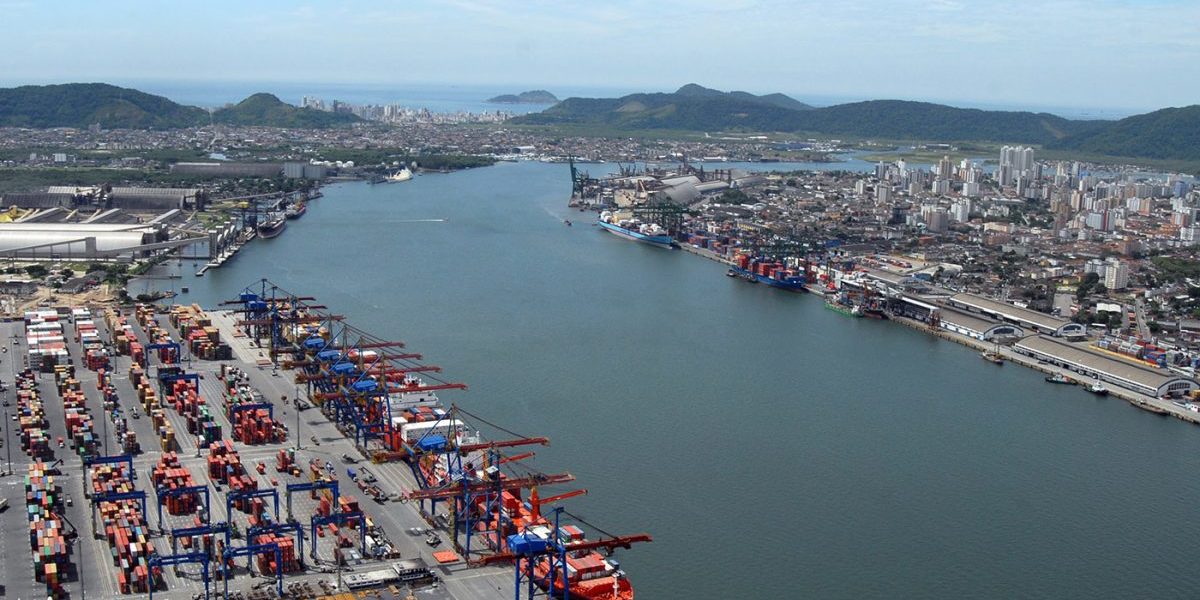
Organizations assess the impact of the new list of charges at the Port of Santos
Feb, 01, 2022 Posted by Gabriel MalheirosWeek 202205
In force starting from this Tuesday, February 1st, onwards, the new list of charges applied by the Port of Santos is likely to impact the largest port complex in Brazil. The average readjustment will be 13.19% as authorized by the National Waterway Transportation Agency (Antaq). The measure partially corrects values frozen since 2018, according to the Santos Port Authority (SPA).
The director-president of the Brazilian Association of Port Terminals (ABTP), Jesualdo Conceição da Silva, explained that the association participated in creating the new methodology for calculating Antaq’s tariffs, seeing both positive points and points of concern.
According to him, the new tariff criteria are transparent. However, there is concern about increased rates causing impacts. “At the time, Antaq said that the port authorities will have mechanisms available to correct overly charged tariffs,” emphasizes Jesualdo saying that the group decided to wait for each port to present the new list to their community.
The Port Operators Union of the State of São Paulo (Sopesp) informed that it is evaluating the tariffs applied to the Port of Santos and their possible resulting impacts.
In turn, the president of the National Federation of Port Operations (Fenop), Sérgio Aquino, argues that a better solution would be having each Port Authority council debate the new tariffs.
According to SPA, the new tariffs will include investments and discounts based on ships’ frequency at the port complex. Deals will also be made available to cabotage vessels and those powered by clean propulsion, as determined by the Environmental Ship Index (ESI).
Changes
The main change observed affecting the charging list is the method used for calculating charges itself. Now, payments are determined based on the use of the port structure in relation to the vessel’s deadweight tonnage (DWT) rather than the amount of cargo loaded on the vessel.
Similar to income taxes, charges are organized in ranges that will go up to 20 thousand DWT, with a charge of R$ 3.14/DWT, and up to more than 140 thousand, with a charge of R$ 0.93/DWT.
Also, the tariff associated with berthings will go through alteration. Now, charges will be applied for each hour of stay instead of fixed periods of six hours. The restructuring applies to vessels loaded with solid bulk, liquid, loose general, and containerized cargo alike, as well as for cruise ships.
In December, Antaq had approved changing the charging criteria for using public services in the port of Santos, in compliance with a resolution from May 2019 of the tariff guidelines that serve port administrations and set tariff readjustment mechanisms for organized port complexes.
Fonte: A Tribuna
Para ler a matéria original completa acesse o link:
-
Ports and Terminals
Jun, 13, 2023
0
Mayor engages in talks amid contract concerns and cargo shortage in Angra dos Reis
-
Other Logistics
Jun, 01, 2023
0
São Paulo industries see remarkable 25% growth in container transportation
-
Ores
Feb, 14, 2019
0
Vale’s proposed acquisition of Ferrous Resources faces objections
-
Grains
Sep, 21, 2023
0
Argentina: 2023/24 harvest to revamp grain exports

